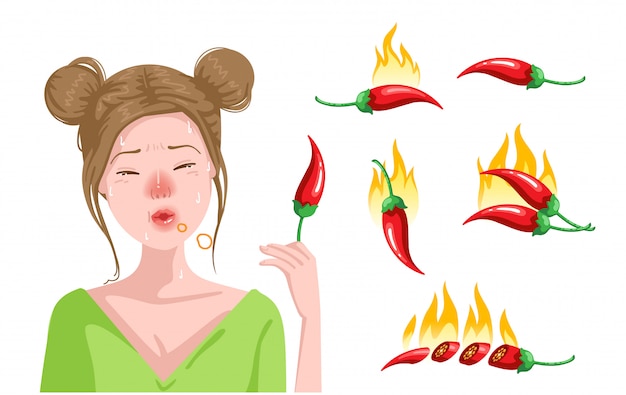
Did you know that chili peppers and cannabis might have similar effects on our gut? Well, recent research suggests they do.
Scientists have unearthed that capsaicin, the compound giving chili peppers their spicy kick, influences a receptor in our gut. This creates something called anandamide – a substance similar to that found in cannabis.
In a mice study, it was discovered that anandamide, which was generated by chilis’ capsaicin, helped reduce inflammation in the gut. This was done by encouraging anti-inflammatory immune cells to do their thing. Amazingly, it also reversed type 1 diabetes in mice.
Pramod Srivastava, a professor involved in the study, believes that their findings hint at the potential benefits of both chili peppers and edible cannabis for treating type 1 diabetes and colitis, a condition which causes inflammation of the colon.
The study also brings up intriguing questions about the links between our immune system, gut, and brain. All these discoveries were reported by the researchers in the “Proceedings of the National Academy of Sciences” journal.
The team, led by Srivastava, induced type 1 diabetes in mice and treated them with capsaicin. They found that this compound from chili peppers affected a particular receptor in the gut, leading to the production of anandamide. Further exploration showed that anandamide not only managed to produce more of itself but also activated another receptor that attracts macrophages, white blood cells that fight inflammation.
As levels of anandamide increased, so did the levels and activity of these inflammation-fighting cells. Both capsaicin and anandamide separately lessened gut inflammation and, unbelievably, capsaicin even reversed type 1 diabetes in the mice.
Interestingly, anandamide is chemically identical to substances found in cannabis and binds to the same receptors in our brain. This does not only suggest that edible cannabis might lessen gut inflammation but shines a light on the connection between the gut, our immune system, and our brain.
“This makes you think of how our immune system and brain might communicate. They share a common language,” said Srivastava.
Srivastava and his colleagues are eager to further investigate how edible cannabis might impact gut inflammation in humans. They are also interested in understanding the precise paths through which chili peppers and cannabis cut down inflammation.
Isn’t it fascinating to think that these seemingly unrelated factors could have such a significant impact on our gut health? Stay tuned for more discoveries in this area!


